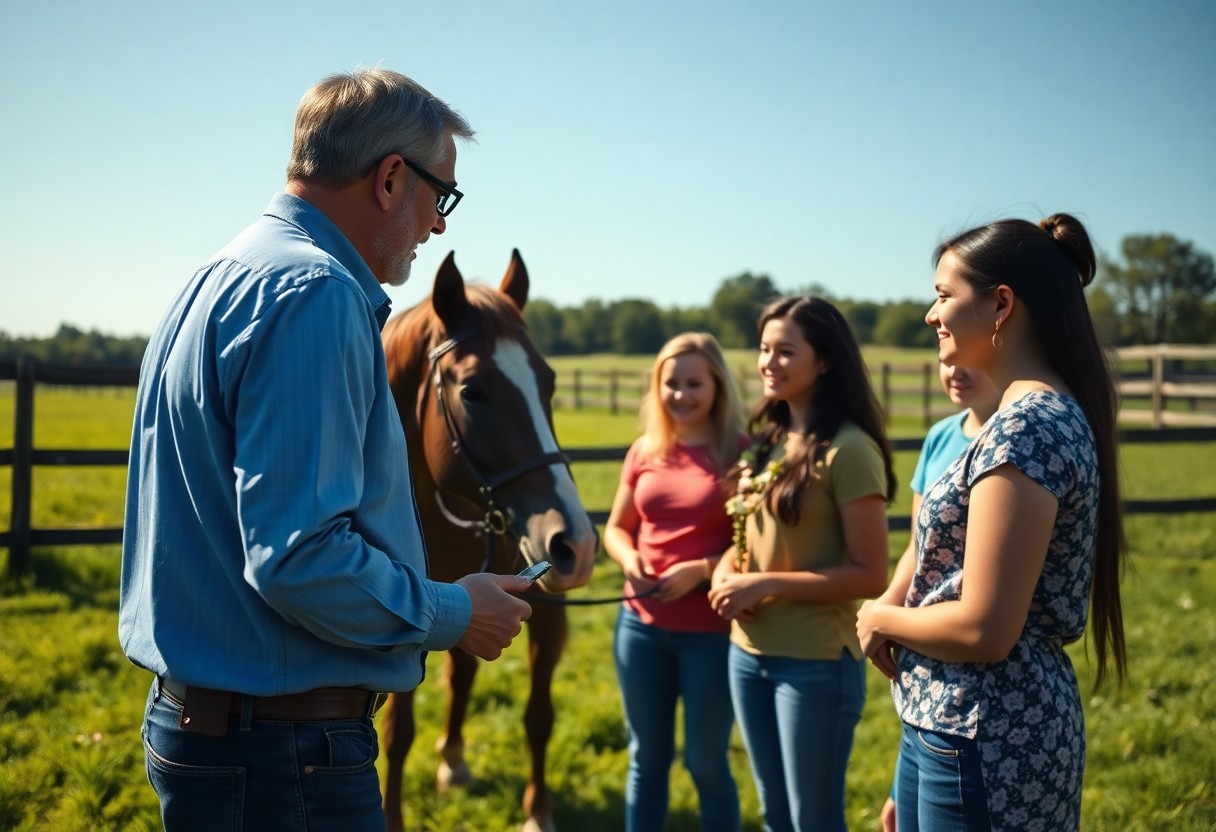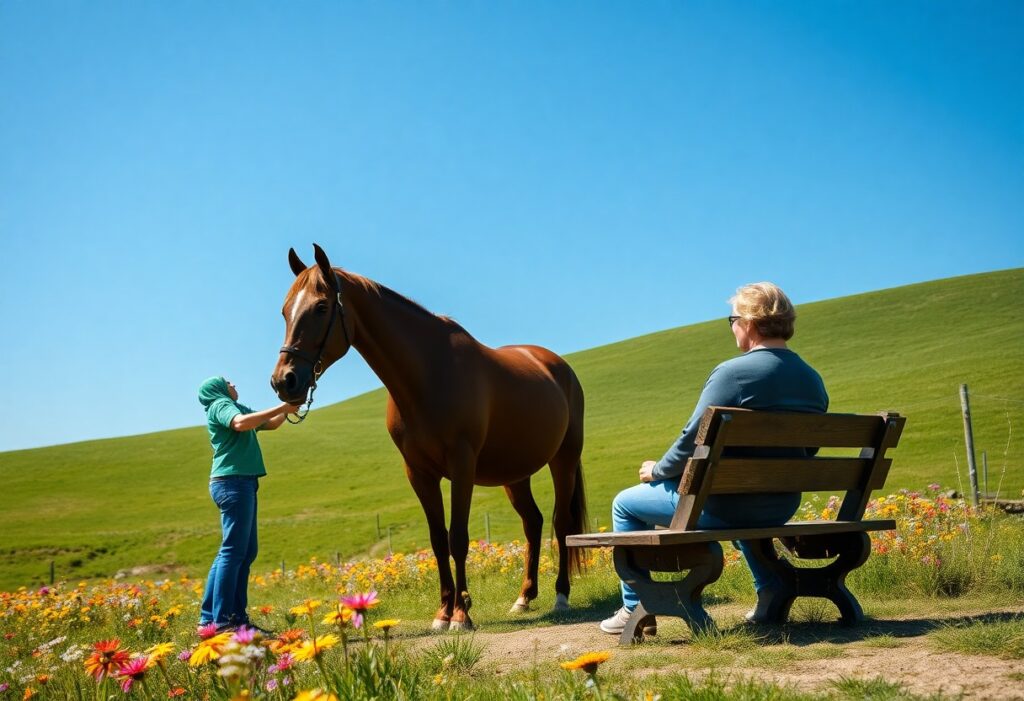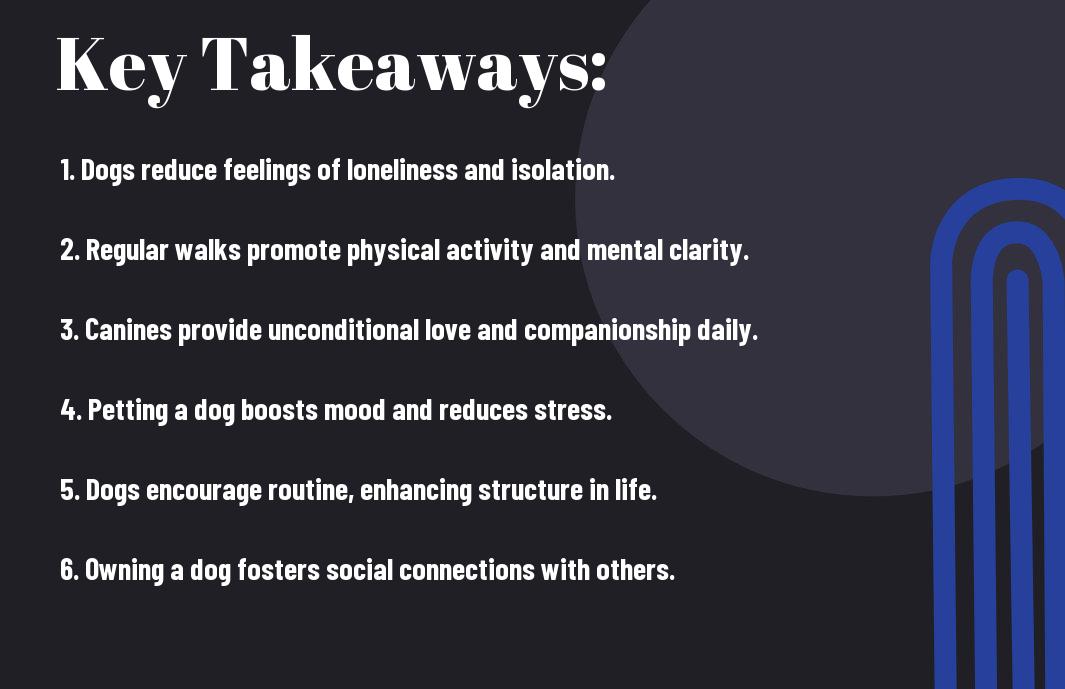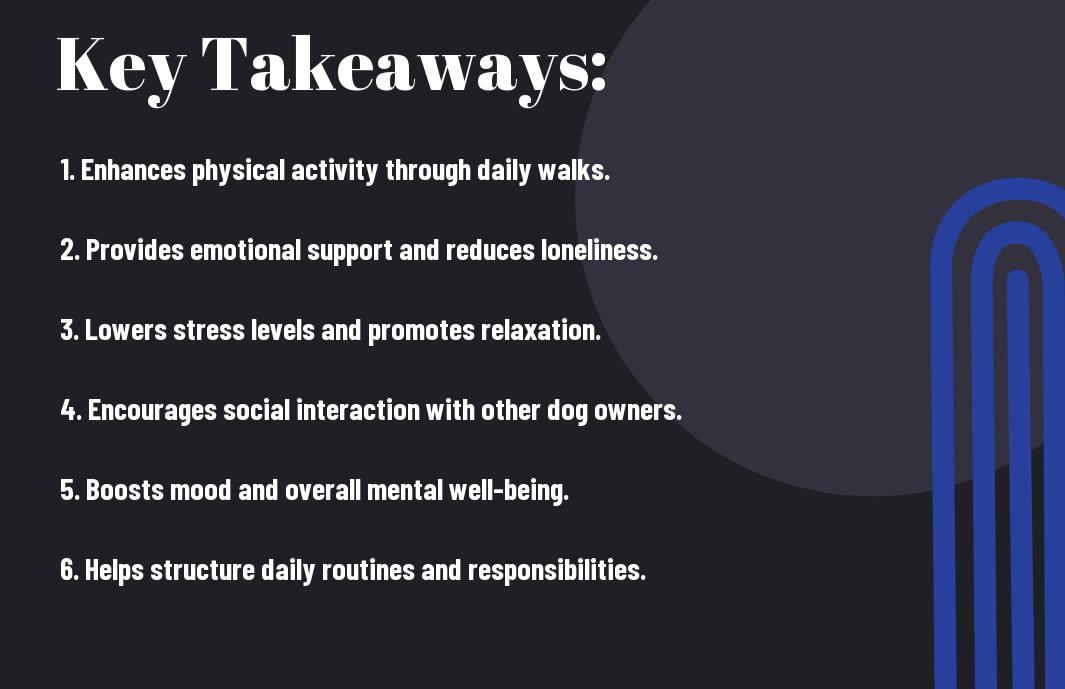Therapy is taking a remarkable turn with the rise of equine-assisted therapy, where the connection between you and horses fosters healing in profound ways. Engaging with these gentle giants can help you tackle emotional trauma, anxiety, and depression, providing a unique, transformative experience. As you interact with horses, the bond you create not only enhances your self-esteem but also promotes emotional awareness and resilience. Discover how this innovative approach is creating pathways for healing that traditional therapies may overlook.

The Emotional Connection: How Horses Sense Human Feelings
Horses possess a remarkable ability to pick up on human emotions, often acting as mirrors to our feelings. This sensitivity establishes a profound emotional connection that can be instrumental in healing. You may notice how a horse can sense your anxiety, offering comfort through their calm presence or mirroring your joy with playful behavior. This connection is not merely anecdotal; it is rooted in a horse’s instinctual behaviors, which have evolved over thousands of years to survive and thrive in social groups.
The Science of Equine Empathy
Scientific studies suggest that horses are highly attuned to human body language, vocal tones, and emotional cues. You might find that they respond more strongly to your nonverbal cues than to spoken words, highlighting their innate ability to gauge your emotional state. Research indicates that horses can differentiate between positive and negative emotions, showcasing their empathy and understanding of human feelings.
Emotional Responses in Horse-Human Interactions
Your interactions with horses can evoke various emotional responses, both in you and the horse. For instance, horses may display stress or agitation in response to your fear or anxiety, while a calm, confident demeanor from you can lead to a relaxed horse. The reciprocal nature of these interactions enhances the therapeutic benefits of equine-assisted therapy, reinforcing a trusting bond.
During sessions, horses often reflect the emotions you experience, which can serve as a valuable tool for self-awareness and emotional regulation. When you are anxious, a horse may become restless, prompting you to reflect on your feelings and address them. Conversely, a quiet, engaged horse can help ground you, promoting relaxation and emotional stability. These experiences can lead to significant breakthroughs in understanding and managing your emotional landscape, as the horse’s response encourages deeper introspection and healing.

Bridging Trauma and Recovery: How Equine Therapy Works
Equine-assisted therapy offers a unique pathway for you to bridge the gap between trauma and recovery. This therapeutic approach utilizes interactions with horses to foster emotional healing and personal growth. Through structured activities, you may find yourself developing trust, communication, and self-awareness, all necessary elements for overcoming past traumas. The presence of the horse not only encourages a sense of safety but also helps you to explore feelings, confront fears, and build resilience in a non-judgmental environment.
Techniques Used in Equine-Assisted Therapy
Techniques in equine-assisted therapy vary widely, incorporating groundwork, riding, and grooming activities. You might participate in exercises that require you to lead a horse, promoting leadership skills and confidence. Additionally, maintaining eye contact and mirroring the horse’s movements fosters emotional connection and self-regulation. Each technique is designed to encourage reflection and facilitate dialogue about your experiences and feelings, ultimately enhancing your therapeutic journey.
The Role of the Horse as a Co-Therapist
The horse serves as a co-therapist by responding to your emotions and body language in real-time. This reciprocal relationship allows you to engage in self-discovery and reflection, as the horse’s behavior reflects your current emotional state. When a horse reacts to feelings of anxiety, for instance, it provides a tangible opportunity for you to recognize and address those emotions constructively. The horse becomes a partner in your healing process, fostering a sense of connection that can lead to profound insights.
This relationship with the horse enhances your emotional growth by revealing patterns in your behavior you may not be consciously aware of. For example, if you tend to approach a horse with hesitation, it mirrors your internal struggles with vulnerability. The horse’s instinctive reactions enable you to face discomfort and learn effective coping mechanisms. Such profound interactions foster empathy, patience, and emotional understanding, making the horse an invaluable co-therapist in your recovery process.
Breaking Stigmas: The Impact of Equine Therapy on Mental Health
Equine therapy challenges mental health stigmas by showcasing the profound connection between humans and horses. These interactions often lead to significant improvements in emotional well-being and self-esteem. Individuals who once felt isolated can now experience acceptance and healing in the presence of these majestic animals. The non-judgmental nature of horses creates a safe space where you can explore your feelings and build rapport, fostering an environment conducive to personal growth and recovery.
Success Stories: Real Lives Changed by Horses
Numerous success stories illustrate the transformative power of equine therapy. For instance, a teenager facing anxiety found solace in working with horses, which led to improved social skills and reduced panic attacks. Similarly, veterans struggling with PTSD report decreased symptoms and increased resilience through regular sessions. These real lives remind you that change is possible, and horses play a vital role in this healing journey.
Overcoming Misconceptions About Non-Traditional Therapies
Equine therapy often faces skepticism as a legitimate treatment option for mental health issues. Many believe traditional methods are more effective, but research indicates otherwise. Studies show that equine-assisted therapy can yield results comparable to, or even surpass, conventional therapies, especially in building trust and emotional resilience. You will find that integrating horses into treatment not only enhances therapeutic experiences but also broadens possibilities for healing.
Some misconceptions stem from a lack of understanding about how non-traditional therapies function. Unlike conventional talk therapy, where communication is primarily verbal, equine therapy emphasizes action, connection, and body language. Engaging with horses allows you to process emotions non-verbally, often leading to breakthroughs that traditional settings might not achieve. Statistics reveal that 75% of participants experience improved emotional regulation after equine therapy, highlighting its effectiveness and potential as a complementary treatment for a range of mental health issues.
The Path to Certification: Becoming an Equine-Assisted Therapist
Certification as an equine-assisted therapist requires a blend of education, practical experience, and specialized training. You must typically hold relevant credentials in mental health or educational fields, followed by a specific program in equine-assisted therapy. This journey equips you to harness the therapeutic power of horses effectively, addressing the diverse needs of your clients.
Training Programs and Requirements
Training programs for equine-assisted therapy often include coursework in psychology, equine behavior, and therapy techniques. You will engage in hands-on training with horses, emphasizing safe handling and understanding their behavior. Most programs also mandate supervised hours with clients, ensuring you apply what you’ve learned in real-world settings.
Professional Organizations and Resources
Joining professional organizations such as the Equine Assisted Growth and Learning Association (EAGALA) or the Riding for the Disabled Association (RDA) can enhance your credibility and network. These organizations provide resources, support, and training opportunities, helping you stay current with best practices and developments in the field.
Professional organizations act as vital support systems for aspiring equine-assisted therapists. EAGALA, for example, provides a comprehensive certification program with ongoing education options. Membership often includes access to a vast network of practitioners, webinars, and regional workshops that foster professional growth. Additionally, they publish research and case studies that enrich your understanding and skills, ensuring you’re equipped to offer effective therapeutic services that harness the healing potential of horses.
Cultivating Community: The Role of Support Groups in Equine Therapy
Support groups play a vital role in enhancing the effectiveness of equine therapy. By fostering a sense of community, these groups create a safe space where individuals can share their journeys and challenges. Engaging with others who have similar experiences not only reduces feelings of isolation but also strengthens the healing process, making it an imperative component of therapy.
Connecting Individuals through Shared Experiences
Shared experiences form the backbone of support groups in equine therapy. By relating to one another’s challenges and triumphs, you cultivate a sense of belonging that enhances your emotional healing. As you bond over personal stories, you begin to understand that you are not alone in your struggles, which can be incredibly empowering and reassuring.
Building Resilience through Group Sessions
Group sessions facilitate resilience-building by encouraging collaboration and support among participants. As you navigate your challenges with others, you’ll develop valuable coping strategies that enhance your emotional strength. This group dynamic promotes accountability and motivation, vital elements in overcoming personal hurdles and achieving mental well-being.
During group sessions, you will engage in activities that emphasize teamwork, allowing you to face your fears in a supportive environment. For instance, working together to groom or ride horses fosters trust and communication skills among participants. These interactions not only reinforce positive relationships with others but also boost your self-confidence as you witness collective progress. Data suggests that individuals participating in group therapy are 40% more likely to report increased self-efficacy, highlighting how shared support can significantly elevate your resilience.
Final Words
Ultimately, you can appreciate how equine-assisted therapy offers profound healing benefits, tapping into the unique bond between humans and horses. This therapy not only helps you navigate emotional challenges but also fosters personal growth and resilience through meaningful interactions. As you consider this innovative approach, you open the door to new possibilities for emotional well-being, potentially transforming your life through the power of these magnificent animals.
FAQ
Q: What is equine-assisted therapy?
A: Equine-assisted therapy is a therapeutic approach that involves interactions between clients and horses. This type of therapy aims to promote emotional growth, cognitive awareness, and physical healing through guided activities with horses, integrating the unique bond formed between humans and these animals.
Q: How does equine-assisted therapy benefit emotional health?
A: Equine-assisted therapy can significantly improve emotional health by providing individuals with a non-judgmental environment. Participants often experience reduced anxiety, enhanced self-esteem, and improved social skills as they learn to connect with and communicate through their interactions with horses.
Q: Who can benefit from equine-assisted therapy?
A: Individuals of all ages and backgrounds can benefit from equine-assisted therapy. It is particularly effective for those dealing with trauma, anxiety, depression, autism, and other behavioral or emotional challenges. The individualized approach tailors sessions to meet diverse needs and goals.











